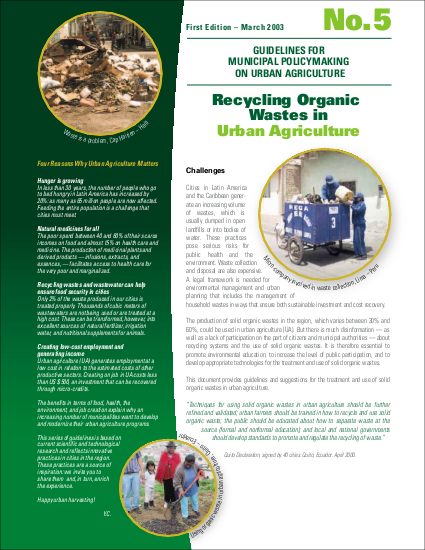
Cities in Latin America and the Caribbean generate an increasing volume of wastes, which is usually dumped in open landfills or into bodies of water. These practices pose serious risks for public health and the environment. Waste collection and disposal are also expensive. A legal framework is needed for environmental management and urban planning that includes the management of household wastes in ways that ensure both sustainable investment and cost recovery. The production of solid organic wastes in the region, which varies between 30% and 60%, could be used in urban agriculture (UA). But there is much disinformation — as well as a lack of participation on the part of citizens and municipal authorities — about recycling systems and the use of solid organic wastes. It is therefore essential to promote environmental education, to increase the level of public participation, and to develop appropriate technologies for the treatment and use of solid organic wastes. This document provides guidelines and suggestions for the treatment and use of solid organic wastes in urban agriculture.
Resource collections
- Evaluating humanitarian action
- UN Habitat - Urban Response Collection
- Urban Response - Urban Crisis Preparedness and Risk Reduction
- Urban Response Collection - Community Engagement and Social Cohesion
- Urban Response Collection - Economic Recovery
- Urban Response Collection - Environment and Climate Change
- Urban Response Collection - Housing, Land and Property
- Urban Response Collection - Urban Crisis Response, Recovery and Reconstruction
- Urban Response Collection - Urban Resilience